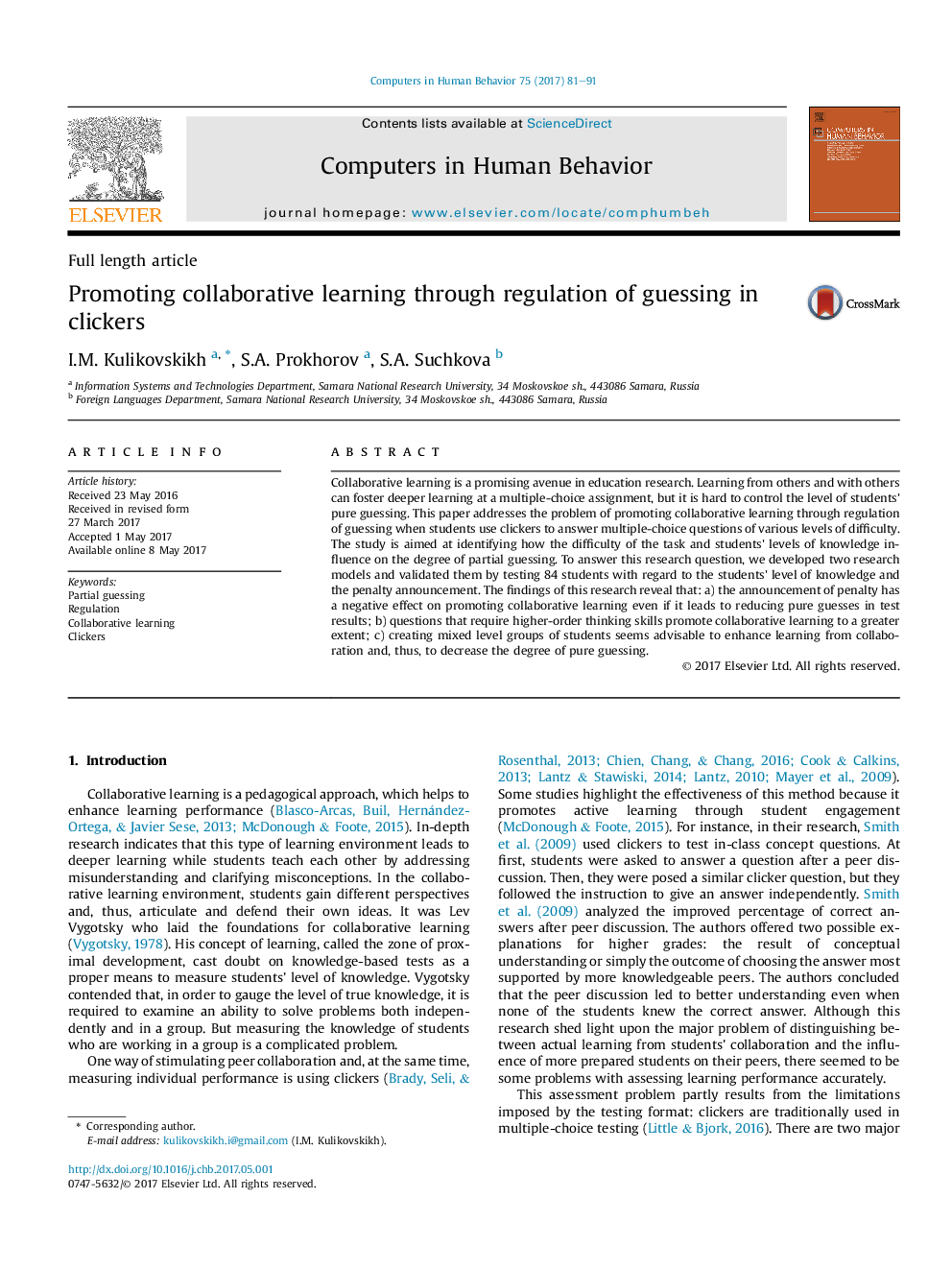| Article ID | Journal | Published Year | Pages | File Type |
|---|---|---|---|---|
| 4937481 | Computers in Human Behavior | 2017 | 11 Pages |
Abstract
Collaborative learning is a promising avenue in education research. Learning from others and with others can foster deeper learning at a multiple-choice assignment, but it is hard to control the level of students' pure guessing. This paper addresses the problem of promoting collaborative learning through regulation of guessing when students use clickers to answer multiple-choice questions of various levels of difficulty. The study is aimed at identifying how the difficulty of the task and students' levels of knowledge influence on the degree of partial guessing. To answer this research question, we developed two research models and validated them by testing 84 students with regard to the students' level of knowledge and the penalty announcement. The findings of this research reveal that: a) the announcement of penalty has a negative effect on promoting collaborative learning even if it leads to reducing pure guesses in test results; b) questions that require higher-order thinking skills promote collaborative learning to a greater extent; c) creating mixed level groups of students seems advisable to enhance learning from collaboration and, thus, to decrease the degree of pure guessing.
Related Topics
Physical Sciences and Engineering
Computer Science
Computer Science Applications
Authors
I.M. Kulikovskikh, S.A. Prokhorov, S.A. Suchkova,
